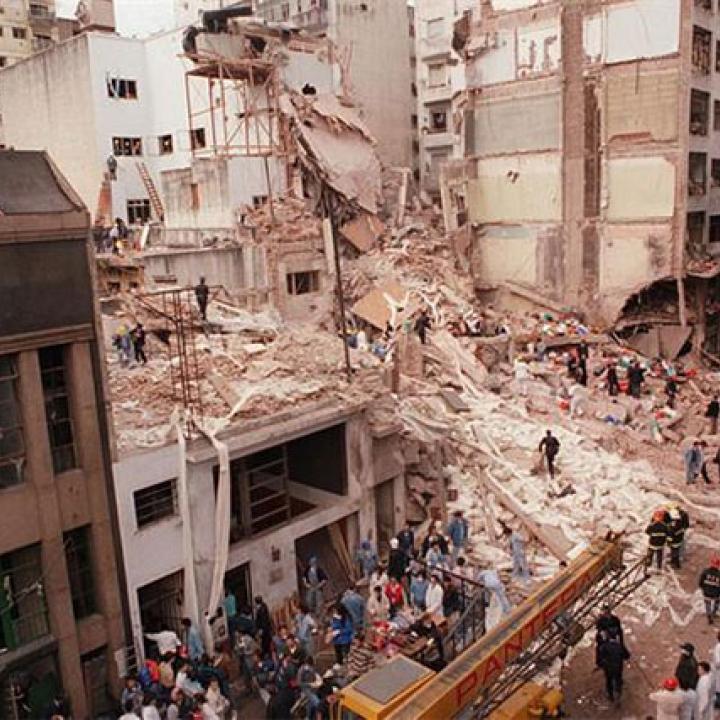
- Policy Analysis
- Articles & Op-Eds
With Nisman Dead, AMIA Case Falls Down the Rabbit Hole

Rather than acting on the mountain of existing evidence uncovered by a tragically slain prosecutor, Argentina is allowing an Iranian fugitive to undermine its investigation into a mass terrorist attack in downtown Buenos Aires.
The following is a translation of an article published today in the Argentinian newspaper Clarin. Read the original Spanish-language version.
Like a modern variation of Alice in Wonderland, the investigation into the terrorist bombing of the AMIA Jewish community center has taken a fall down a mysterious rabbit hole -- a metaphor for entry into a disorienting unknown where logic is suspended and fantasy is taken as reality.
In less than two months we will mark the twenty-first anniversary of the AMIA bombing, the murder of 85 people, and wounding of many more. Here is what is established fact, as I lay out in excruciating detail in my book Hezbollah: The Global Footprint of Lebanon's Party of God: Iran and Hezbollah carried out both the 1994 AMIA bombing and the 1992 bombing of the Israeli embassy. All other theories -- a Syrian connection, a Jewish extremist plot, weapons smugglers from Argentina's extreme-right -- were all thoroughly investigated, run down, and closed for lack of evidence. Meanwhile, evidence piled up exposing the precise roles played by Hezbollah operatives like Salman al-Reda and Iranian agents like Mohsen Rabbani.
Today, vested interests in Argentina seem eager to whitewash this evidence, not by challenging the extensive evidence but by tarnishing the reputation of federal prosecutor Alberto Nisman even after his apparent murder. Along the way, these powerful parties are intimidating the victims of the AMIA bombing, members of Argentina's Jewish community, threatening charges of treason, money laundering, or worse.
Meanwhile, some of the Iranians indicted by Argentinean authorities for their roles in the AMIA bombing feel so comfortable in this new Alice in Wonderland environment -- in large part a result of the so-called "truth commission" deal signed with Tehran -- that they appear on local television insisting the charges against them are simply lies. Ali Akbar Velayati, Iran's Foreign Minister in 1994 and today an advisor to Iran's Supreme Leader, declined to appear before an Argentinean court but told C5N TV that charges against him amount to a "baseless accusation," adding that Argentina is "under the influence of Zionism and the U.S."
Worse still, the man described by Argentinean authorities as the driving force behind the AMIA bombing, Mohsen Rabbani, told Argentinean TV that Nisman's investigation was based on nothing more than "the inventions of newspapers without any proof against Iran." In fact, the most powerful proof against Iran was evidence of Rabbani's own role in the plot, from running a network of intelligence agents in Buenos Aires to purchasing the van used as the car bomb in the attack. And he remains active: according to Nisman's more recent investigations, Iranian agents in Argentina acting at Rabbani's behest and reporting directly back to him were conspiring to concoct fake "new evidence" to supplant the real evidence collected in the case.
And so here war are, down the rabbit hole, with a fugitive of justice coordinating a conspiracy to undermine the investigation of Argentina's own law enforcement authorities into the murder of 85 civilians in downtown Buenos Aires. No wonder many people refer to Nisman as the AMIA bombing's 86th victim.
Clarin



